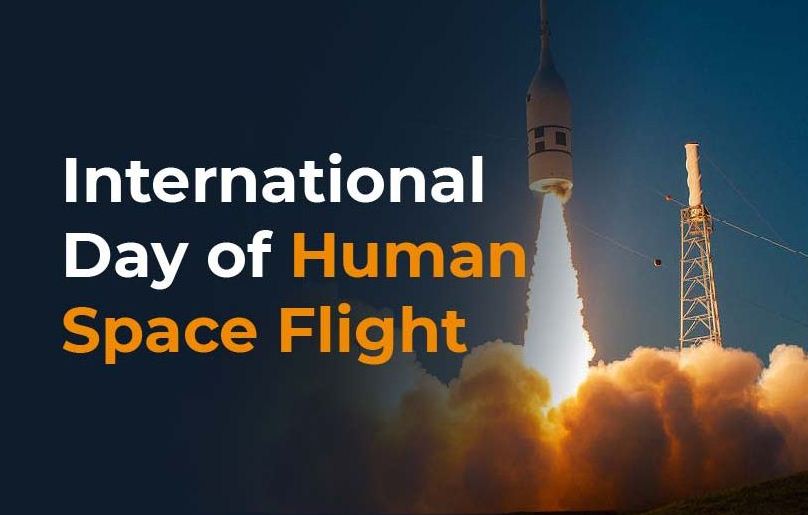The United Nations (UN) International Day of Human Space Flight is observed annually on April 12 to commemorate humanity’s entry into the space age and to highlight the critical role of space science and technology in advancing sustainable development goals (SDGs) and improving the welfare of nations and individuals.
It also emphasizes the need to preserve outer space for peaceful purposes.
Background:
- On April 7, 2011, the UN General Assembly (UNGA) adopted resolution A/RES/65/271, declaring April 12 as International Day of Human Space Flight.
- The first-ever International Day of Human Space Flight was observed on April 12, 2011.
Why 12th April?
- Russian cosmonaut Yuri Gagarin of the Soviet Union made the first human space trip on April 12, 1961.
- Yuri Gagarin orbited the Earth once in 108 minutes aboard the Vostok-1 space capsule, the first-ever crewed spacecraft, and landed in Saratov, Russia.
Some significant milestones in space exploration:
- Sputnik I, the first human-made Earth satellite, was launched into orbit in 1957.
- Russia’s Valentina Tereshkova was the first woman to circle the Earth in 1963.
- In 1969, American astronaut Neil Armstrong became the first to walk on the Moon.
- The Apollo-Soyuz spacecraft docked on July 17, 1975, marking the first multinational human mission in space.
- The first segment of the International Space Station (ISS) was launched in November 1998. A Russian proton rocket launched the Russian Zarya control module.
UN and Space Exploration:
- The UN has recognized the importance of space exploration for human advancement since the Space Age began.
- The United Nations intends to use outer space’s unique advantages for the collective good of humanity.
Role of United Nations Office for Outer Space Affairs (UNOOSA):
- The United Nations Office for Outer Space Affairs (UNOOSA) leads international collaboration for peaceful use of space.
- It serves as the secretariat for the UN General Assembly’s only Committee on the Peaceful Uses of Outer Space (COPUOS), which is only concerned with international cooperation in outer space.
- In addition, UNOOSA carries out the Secretary-General’s duties under international space law and maintains the UN Register of Objects Launched into Outer Space.

